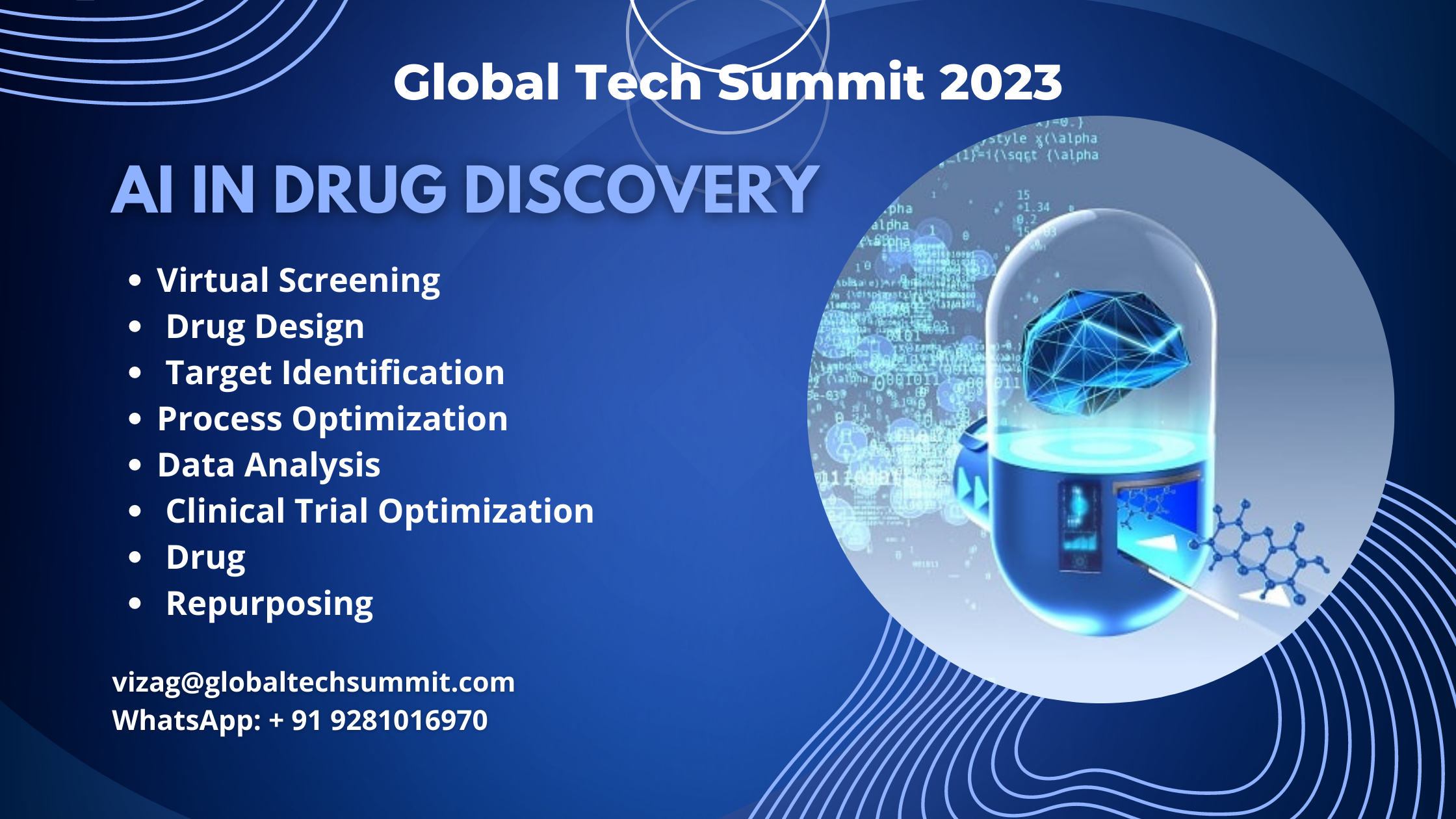
Introduction:
The field of drug discovery is experiencing a transformative wave, thanks to the immense potential of Artificial Intelligence (AI). AI has emerged as a game-changer, revolutionizing the traditional processes of pharmaceutical research. In this blog post, we will explore the remarkable ways AI is shaping drug discovery, enabling scientists to expedite the development of life-saving drugs.
Virtual Screening:
One of the critical challenges in drug discovery is the identification of potential drug candidates from vast chemical compound libraries. AI algorithms and machine learning models excel in virtual screening, rapidly analyzing and predicting the interaction between compounds and specific drug targets. By narrowing down the search space, AI saves valuable time and resources, facilitating more efficient drug discovery.
Drug Design and Optimization:
AI empowers researchers to design and optimize drug molecules with desired properties. Machine learning models learn from existing data to predict a compound's success based on its structure, binding affinity, and pharmacokinetic properties. This accelerates the identification of promising drug candidates, expediting the drug development process.
Target Identification:
Discovering new drug targets is a crucial aspect of drug discovery. AI aids in analyzing vast amounts of biological data, including genomics, proteomics, and clinical information, to identify potential targets. By unraveling the molecular mechanisms underlying diseases, AI assists researchers in pinpointing new targets for therapeutic intervention.
Process Optimization:
AI optimizes various stages of the drug discovery process. It automates compound synthesis, predicts compound solubility and toxicity, and optimizes drug formulation. These advancements significantly enhance the efficiency of drug development, reducing costs and time.
Data Integration and Analysis:
AI excels in integrating and analyzing diverse datasets from scientific literature, clinical trials, and public databases. By leveraging this wealth of information, researchers can gain insights, identify patterns, and make data-driven decisions. AI-driven data analysis revolutionizes the understanding of complex diseases and expedites the identification of potential drug candidates.
Clinical Trial Optimization:
AI analyzes patient data to identify suitable candidates for clinical trials and predict the success of a drug candidate. This optimization improves trial design, patient recruitment, and enhances the likelihood of success. Ultimately, AI streamlines the clinical trial process, leading to faster and more efficient drug development.
Drug Repurposing:
The process of repurposing existing drugs for new indications is another area where AI demonstrates its prowess. By analyzing vast datasets and establishing connections between drug properties and disease mechanisms, AI algorithms can identify potential alternative uses for approved drugs. This repurposing approach saves time, reduces costs, and facilitates the discovery of new treatment options.
Conclusion:
Artificial Intelligence has emerged as a catalyst, propelling drug discovery into a new era of innovation and efficiency. By augmenting human expertise, AI expedites the identification of drug candidates, optimizes processes, and transforms the entire drug development pipeline. The integration of AI with traditional research approaches holds immense promise for developing novel therapies and improving patient outcomes. As AI continues to evolve, we can expect unprecedented advancements in drug discovery, ushering in a new era of personalized medicine and transformative treatments.
Global Tech Summit
Posted on: Jul 05, 2023

